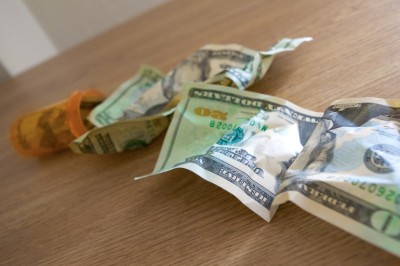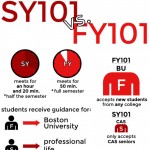
The U.S. Department of Health and Human Services announced Monday that the Commonwealth of Massachusetts will be receiving approximately $6.8 million in federal funds, according to a Friday press release.
According to the release, the money comes as a part of a $94 million grant program from the Health Resources and Services Administration to fund substance abuse services. The release also stated that 4.5 million Americans abused non-medical prescription pain relievers in 2013, and approximately 289,000 used heroin.
Martin Kramer, a spokesperson for the HRSA, said this grant is the first of its kind to focus on the opioid epidemic plaguing the nation.
“These are the first awards of their kind provided to health centers to improve and expand the delivery of substance abuse services in health centers with a specific focus on treatment of opioid use disorders in underserved populations,” Kramer said.
Beyond Massachusetts, 45 other states, as well as the District of Columbia and Puerto Rico will also benefit from this $94 million grant program, which will allow for nearly 800 providers to be hired and treatment of up to 124,000 new patients, the release stated.
When awarded the federal grants, Massachusetts will allocate its funds to 20 community health centers, nine of which are located in Boston.
According to the release, the main goals of HHS are comprised of three main components: providing educational resources for heath professionals to administer the proper drug prescriptions; increasing the use of naloxone, a medication used to treat narcotic overdose; and expanding the availability of medication-assisted treatment, which essentially combines the use of medication and behavioral therapy.
John Guilfoil, the executive director of The Police Assisted Addiction and Recovery Initiative, said he finds a direct correlation between the use of prescription opioids and heroin, and he identifies the former as a gateway drug to heavier substances.
“There isn’t just a link, but there is a definite causal connection between prescription opioids and heroin use,” Guilfoil said. “Just in Gloucester, we’ve seen upwards of 85 percent of people who have come in for treatment reporting that they began their road to heroin use with a prescription for opioid that was prescribed to them by their doctor.”
Guilfoil also praised Massachusetts for the commonwealth’s abundant efforts to help curb the opioid epidemic.
“We’re blessed with tremendously good health insurance in Massachusetts,” Guilfoil said. “It’s probably easier to get recovery than arguably any other state in the country. On the flipside, you have the state of Maine, which is probably the worst state in the country to be addicted at because they have terrible insurance and there are virtually no resources for people to get recovery.”
Boston residents responded positively to the idea of allocating federal money toward aiding victims of addiction.
Brian Murphy, 25, of East Boston, said he thinks the money will begin the process of ending the epidemic of abuse.
“It’s a good initiative,” he said. “I personally think doctors and pharmaceutical companies are just trying to make money off of people. The more prescriptions they write, the more money they make. I’m not sure this new legislation will be successful, because it’s hard to just eliminate the problem. But I’m sure it’ll help slow it down.”
Brian Bates, 32, of Jamaica Plain, said he’s concerned with the availability of treatment to everyone suffering with addiction.
“There are a lot of effective evidence-based treatments for people struggling with addiction,” he said. “Unfortunately, there are some limitations in helping patients access those treatments.”
Juan Williams, 20, of Roxbury, said he looks forward to the improvements to come from the federal money.
“As long as it’s treated as a medical issue and treated seriously,” he said, “then it’s a step forward.”














